Inside the rise of speed-friending in Adelaide as Gen Z hit back at loneliness epidemic
Speed-friending, find-a-friend Facebook groups and even dinner with strangers. Young Aussies, like Jess Bradley, are coming up with alternative ways to find friendship.
SA Weekend
Don't miss out on the headlines from SA Weekend. Followed categories will be added to My News.
Jess Bradley marked her miserably unhappy 26th birthday on June 29, 2022 at home on her couch, sad and all alone.
“I was sitting there by myself and I was like, ‘It would be really cool to have friends around me right now,’” says Bradley, who struggled to meet people in “cliquey” Adelaide.
“I’m a person that likes to be around people, I don’t like being by myself very much, so coming to Adelaide and knowing no one was not very fun for me.”
But rather than wallow, the motivated millennial decided to take action right there. The ambulance officer, whose work drew her from Perth to South Australia in 2018, took out her phone and created a brand new Facebook page – Find a Friend – in a bid to make new connections with other women.
She invited everyone she knew in South Australia and shared it to several community and women’s groups on Facebook.
Within a few weeks, the site had 1000 members and that September, it hosted its first get-together at a Mexican restaurant.
“About 20 people came, all in their 20s and 30s. No one knew each other,” says Bradley, who met the woman who continues to be her closest friend in SA at that first gathering.
“I think there’s been a few connections from that one. Friendships that are still strong today.
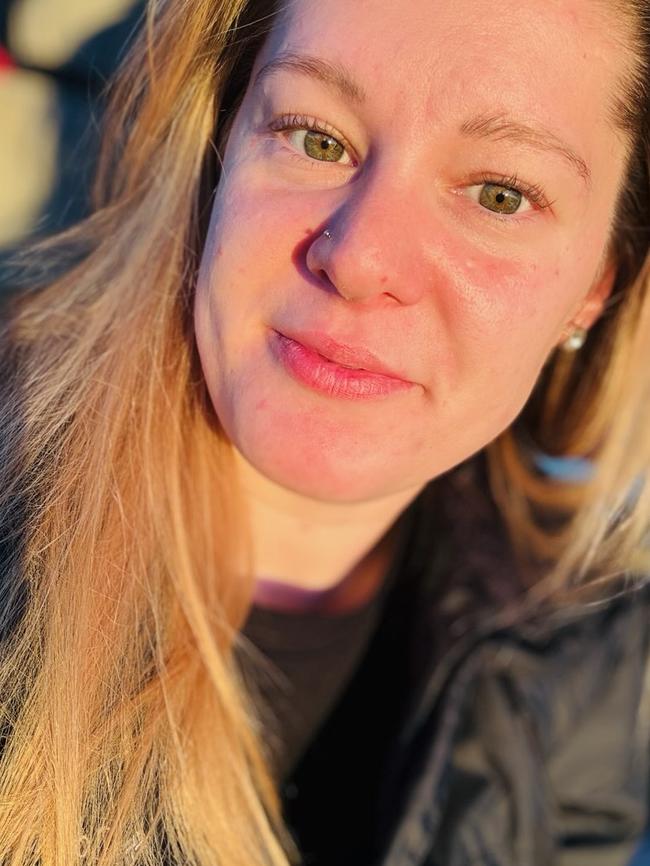
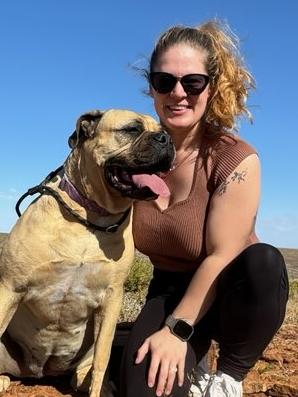
Everyone was very nervous, there was a mutual feeling of anxiety which I think actually brought people together.
“The group took off a lot better than I thought it would. It just kept growing and we kept doing events where people could make new friends.”
Today, Find a Friend has over 7000 members, with more than 40 per cent in the 25 to 34 year old age bracket. And the group still holds regular events – dinners, special guest speakers, wine tours and “women’s circles” led by holistic health provider Amelia Finn.
Members regularly post “friend applications”, where they list their details in the hope of widening their circle.
“It probably grows by a couple of hundred members a week,” says Bradley, whose work has now taken her to Coober Pedy, where she lives with her partner of six months and fellow ambulance officer, Jeremy Lambert.
“Everybody’s suffering a bit, especially after Covid. It definitely isolated people, made them feel more alone.”
Jaesen Pich sits opposite a total stranger, full of hope they can start a friendship that will fill the lonely void in his life. They chat for five minutes about their hobbies, favourite foods, music and families before a bell dings, his new mate moves to the next table and yet another potential friend slides into the chair before him.
This is speed-friending – a platonic take on speed-dating that gives isolated people like Pich, who are connected online but feel detached in real life, an opportunity to ditch their devices and meet some friendly faces.
The 25-year-old student is not alone in his loneliness. Gen Z and millennials are now two of the loneliest generations, according to the latest Australian Institute of Health and Welfare data that puts 15 to 24 year olds and 25 to 34 year olds near the top of the scale, just behind 35 to 44 year olds.
“Young people are one of the most lonely age groups in Australia at the moment,” says Dr Ben Lohmeyer, senior lecturer in social work at Flinders University.
“During Covid or just afterwards, young age was identified as a global risk factor for loneliness. There’s really well established literature that says loneliness has a mental health impact but also a physical health impact similar to smoking and obesity.”
Pich, who has found it hard to find friends, especially since leaving Parafield Gardens High School, has now been to three speed-friending events and has a pack of new mates.
“It’s amazing. Everyone who came most definitely went away with a new friend,” says the South Australian Institute of Business and Technology (SAIBT) student, who arrived in Australia from Cambodia in 2013 and is studying for a diploma that acts as a pathway to a university degree in IT, cybersecurity and networking.
“I made connections with four new friends this time – one of them wanted to invite me out for a Korean dinner, so that’s what we’re organising.
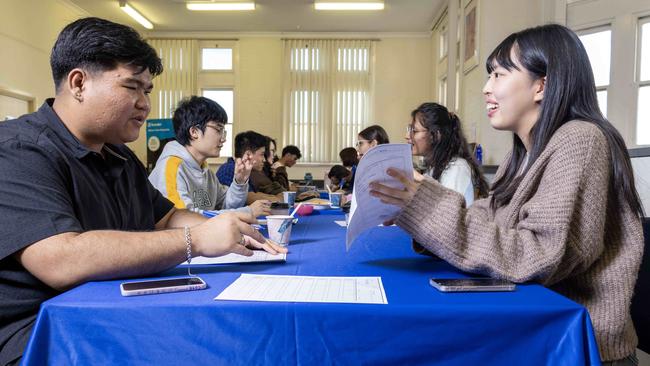
“The people who came along were quite shy and reserved at first but once you get the talk going, it’s great. You’d be surprised how fast that can happen.”
Pich, who lives in Mawson Lakes with his grandmother, acts as host of the speed-friending events, organised by SAIBT and the Centre for English Language University of South Australia in the bowels of the University of South Australia’s city east campus.
He helps to manage the set-up, refreshments – this time it was a warming cup of hot chocolate – and a list of suggested questions to ask during the five-minute slot.
“I understand what it’s like to be lonely. I understand what it’s like to want to have friends, a warm relationship and happiness and not be able to find it. So that’s why I wanted to help out and do the best I can so that other people won’t have to experience what I had to experience,” he says.
“I would say, compared to the past, (my generation) is now more vulnerable to having depression, loneliness and a lot of other things that go really wrong.”
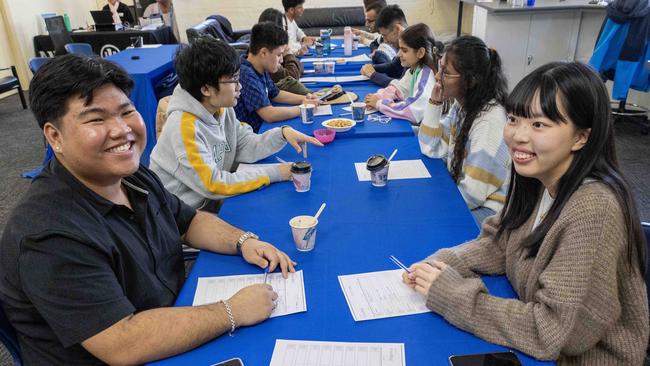
The Australian Institute of Health and Wellbeing data shows just over one in six 25 to 34 year olds and 15 to 24 year olds experience loneliness, narrowly behind 18 per cent of 35 to 44 year olds (nearly one in five).
Its latest analysis, released in April, says an “increasing number of people aged 15-24 have reported experiencing loneliness since 2012. In contrast, the frequency of people aged 65 and over reporting loneliness has been steadily declining since 2001.”
Adelaide clinical psychologist Dr Emma Johnston sees “a lot of young people in the
gen Z and millennial age groups who are lacking connections with others and hence end up feeling lonely and isolated”.
She says the ongoing fallout from Covid, work pressures and time spent on social media were some of the reasons for loneliness.
“Lonely folk can present with various symptoms such as low mood, a sense of hopelessness for the future and a lack of meaning and purpose, as well as symptoms of social anxiety such as shyness and a lack of confidence,” says Johnston, who runs ThinkWise Clinical Psychology in Cumberland Park.
“Really, what I see in clients who are lonely is deep existential despair – how do we define ourselves as a person when we lack the comparison group that comes with close friendships, and how do we function without close connection with other like-minded humans?”
At Flinders University, Lohmeyer is working on a project – with the SA Youth Forum – that is investigating what effect a young person’s environment can have on the way they feel loneliness.
He says it is revealing the importance of having public spaces where people can “bump” into each other, giving them “social permission” to strike up a conversation. It is also looking at the location of support services, particularly in schools, and whether that can be “unhelpful”.
“We’re learning about the design of spaces that are putting people in a position where they feel watched or visible, observed or under scrutiny.
“But also where we locate support services to get help can be difficult in terms of making them feel worse,” he says.
“The research that we’re doing at the moment shows the spaces that young people are a part of can give opportunity for that connection and skill development or it can hinder it.”
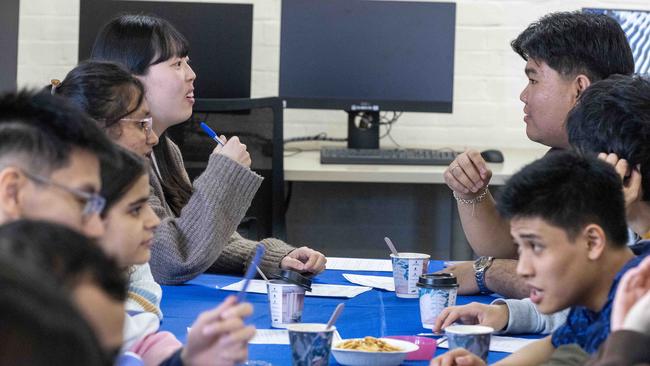
Caroline Burrowes is giving students, particularly those from overseas, ways to connect through her job as student experience co-ordinator at SAIBT.
The college’s speed-friending events are her brainchild.
“It’s a way to help them make friends, meet people and get outside of their bedrooms, because for this generation it’s very challenging for them,” says Burrowes, who has staged three speed-friending meets over the past year and loves seeing the students who get involved form their “posses”.
“It actually really makes a difference.
“It’s important to see this through the wellbeing lens, it’s helping them maintain their wellbeing because it’s an increasingly integral part of overall happiness.
“It’s not a given anymore, we can’t expect somebody to go out and have friends.
“I find that they are very reluctant in that first instance.
“When you get them together, their fallback is to get straight on their phones.
“Breaking through that first wall is very challenging. There’s definitely that need there, people want to have that opportunity to meet people and have those conversations.
“There’s lots of speed-friending events going on all over Adelaide – probably a lot more than speed-dating nowadays.”
For Jaesen Pich, who is planning his next catch-up with his new speed-friending mates – a picnic at Windy Point followed by drinks in the city – the future is looking so much friendlier. “I didn’t have that many friends, which is why I value friendship so much right now,” he says.
“I feel like I can see some light at the end of the tunnel. Before it was quite dim and I wasn’t sure where I’m heading to but now it’s like, ‘Oh, yes, there’s the light, let’s go straight there.’”





